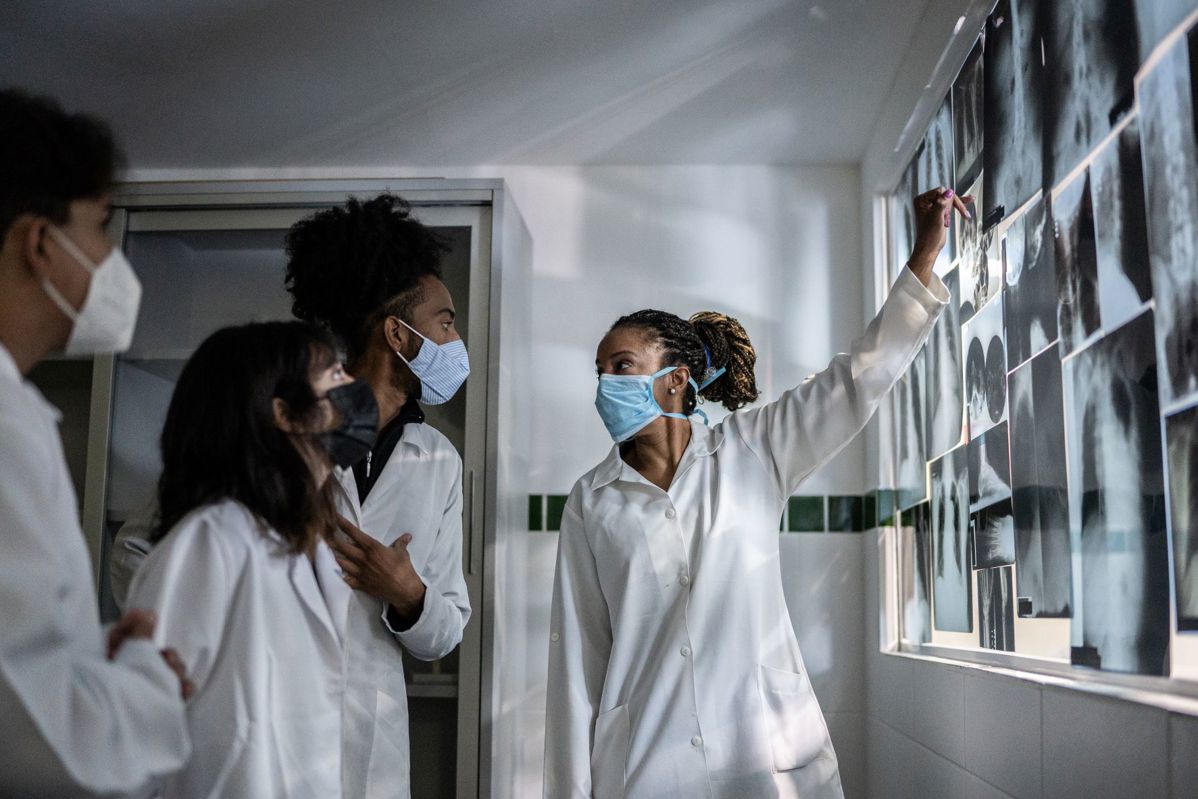CTE Leadership Collaborative Fellows Explore Pandemic’s Effect on CTE
August 03, 2022

By Anna Fontus, Program Officer
Since 2018, ECMC Foundation’s CTE Leadership Collaborative has been working to change the face of postsecondary CTE leadership by equipping a diverse group of emerging leaders with the tools, resources and skills needed to advance the field. As the pandemic upended and reshaped CTE, along with other fields and industries, ECMC Foundation Fellows tracked trends and offered perspectives that deepened the field’s understanding of key issues at a moment of change and opportunity.
The CTE Leadership Collaborative fosters connection and collaboration across a range of approaches and disciplines – with Fellows working as postsecondary-focused researchers, CTE practitioners, data analysts, human resource professionals, journalists, and government officials – informing the evolution of the field from different angles.
Here are highlights from ECMC Foundation Fellows that explore how the evolving nature of the pandemic has affected and reshaped postsecondary CTE:
- Ashley A. Smith’s piece in EdSource and Mikhail Zinshteyn’s piece in CalMatters provided deep dives into how postsecondary CTE programs in California adapted in the primarily virtual environment early on in the pandemic.
- Researcher Sara A. Shaw contributed to publications that explored an equity-minded approach to employment decisions at higher education institutions facing pandemic-induced financial challenges and how the pandemic shined a light on the need for ethical leadership in virtual environments.
- In the Community College Journal, researcher Adam Atwell contributed to a paper that compared pandemic responses of rural and urban institutions.
- Media Fellows took a look at how the pandemic affected worker shortages in specific industries, including homebuilding (from Amy Scott of Marketplace) and child care (from Jenny Brundin of Colorado Public Radio)
- The challenges and opportunities of positioning CTE at the forefront of the economic recovery were explored by Rebecca Koenig in EdSurge (“Guiding Young People Not to Colleges or Careers — But to Good Lives”), Molly Osborne Urquhart in EdNC (“‘It’s not enough to get students in the door’ — Reimagining the role of community colleges”), Bianca Quilantan in Politico (“How to rebuild the workforce without a four-year degree”), and Debbie Truong in WAMU/NPR (“Adult Education Saw Some Of The Steepest Declines Among D.C.’s Public School Enrollment During The Pandemic”).
In addition to the work of the Fellows, ECMC Foundation staff and Fellowship leads also shared insights on trends affecting postsecondary CTE’s present and future.
- ECMC Foundation President Peter J. Taylor emphasized the need for economic recovery programs to center women and workers of color in Forbes and spoke on how community colleges are crucial to an inclusive economic recovery in a webinar co-hosted by New America Foundation and ECMC Foundation.
- In Work Shift, Jennifer Zeisler, ECMC Foundation’s Senior Director of Career Readiness, outlined three key lessons community colleges can apply to advance their approach on CTE, even without a national workforce training strategy.
- AdvanceCTE provided data on the impact of COVID-19 on jobs, wages and the future of work in this brief and Kate Kreamer, AdvanceCTE’s Deputy Executive Director provided an overview of findings in this presentation.
